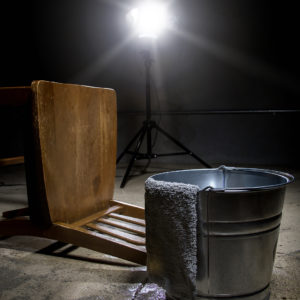It’s incredibly depressing that barely more than a decade after the utter disaster of Abu Ghraib, where disgusting images of torture at the hands of American troops shocked the world, America is once again debating whether it should resume torture.
In addition to being illegal and immoral, America’s experience with torture during the George W. Bush administration showed that torture was both ineffective and counterproductive. In response, both President Obama and Congress took steps to strengthen the pre-existing legal prohibitions on torture. Even former defenders of the Bush administration’s record on torture are now rejecting a return to waterboarding and other torture techniques.
Even if President-elect Donald Trump wants to resume the use of torture — though he has expressed some doubts of doing so since the election — the United States cannot and will not return to torture.
President-elect Trump made waves during the campaign with his calls for a return to waterboarding and “a hell of a lot worse.” His surprise election victory sparked a great deal of concern that a Trump administration would, at the very least, attempt to resume the worst practices of the Bush administration. Those fears may have receded a bit after Trump interviewed retired Gen. James Mattis about possibly becoming the next secretary of defense. Trump says he was surprised that Gen. Mattis told him that waterboarding was not effective and that interrogation based on rapport building was much better.
It’s impossible to predict what Trump will want to do once he assumes the presidency, but at least there is a sign that he may be backing away from one of his most extreme campaign proposals.
Gen. Mattis’ view is backed up by the evidence of torture throughout history and, importantly, by America’s recent experience with it during the Bush administration. An exhaustive report released two years ago by Senate Select Committee on Intelligence on the Bush administration’s detention and interrogation program concluded that the program was “not an effective means of acquiring intelligence or gaining cooperation from detainees” and that it “damaged the United States’ standing in the world.”
Furthermore, the Bush administration’s use of torture also helped fuel terrorist recruitment. One former military intelligence officer who served in Iraq wrote, “I learned in Iraq that the No. 1 reason foreign fighters flocked there were the abuses carried out at Abu Ghraib and Guantanamo.” Why anyone would want to resume a program that did not work and only helped our enemies is beyond me.
Torture has been illegal in the United States since 1948. The Bush administration got around this prohibition by putting forward extremely flawed legal justifications that waterboarding and other enhanced interrogation techniques were not actually torture.
In response to the experience of the Bush administration, President Obama explicitly banned those specific techniques by Executive Order on his first full day in office. Congress followed up that ban with legislation that restricted the interrogation techniques that any U.S. government employee or contractor may use to those in the Army Field Manual on Interrogation. Congress also established a strict review process for any changes to the Field Manual to ensure that prohibited interrogation techniques are not snuck in through the back door.
In addition to these new legal constraints, other practical obstacles exist to reinstating the use of torture. Former Bush administration CIA Director Michael Hayden said about Trump’s proposal to resume waterboarding, “if you want somebody waterboarded, bring your own damn bucket.” Hayden went on to say that “multiple investigations, grand juries, presidential condemnations and congressional” reviews will dissuade the CIA from returning to torture.
Even if the Trump administration gets the recent laws changed, any lawyer in a Trump Justice Department will have to address the legacy of the Bush program that clearly resulted in lasting psychological harm to the detainees. According to Alex Whiting of Harvard Law School, that reality will make it “much more difficult for future lawyers to sanction these techniques as not amounting to torture,” and running afoul of the pre-existing prohibitions on torture and cruel, inhuman and degrading treatment.
No system of laws can entirely restrain an individual determined to break them. But the president-elect and anyone in his administration should know that if they do engage in waterboarding or other torture techniques, they will be in unequivocal violation of the law and will likely end up in jail. The United States should not and will not resume torture.

